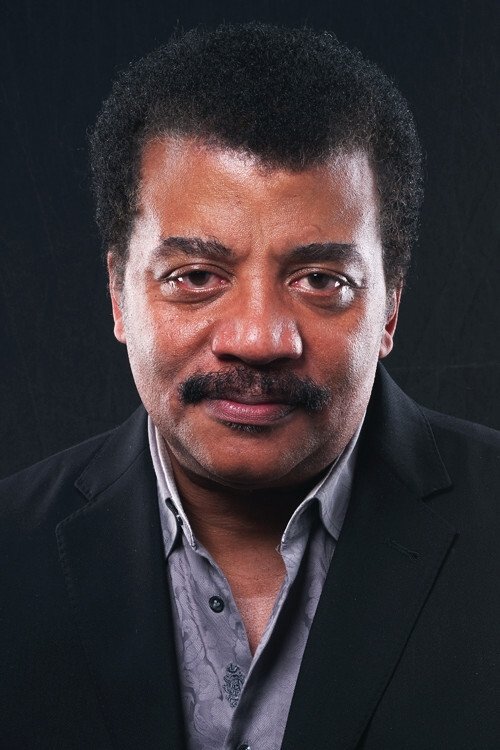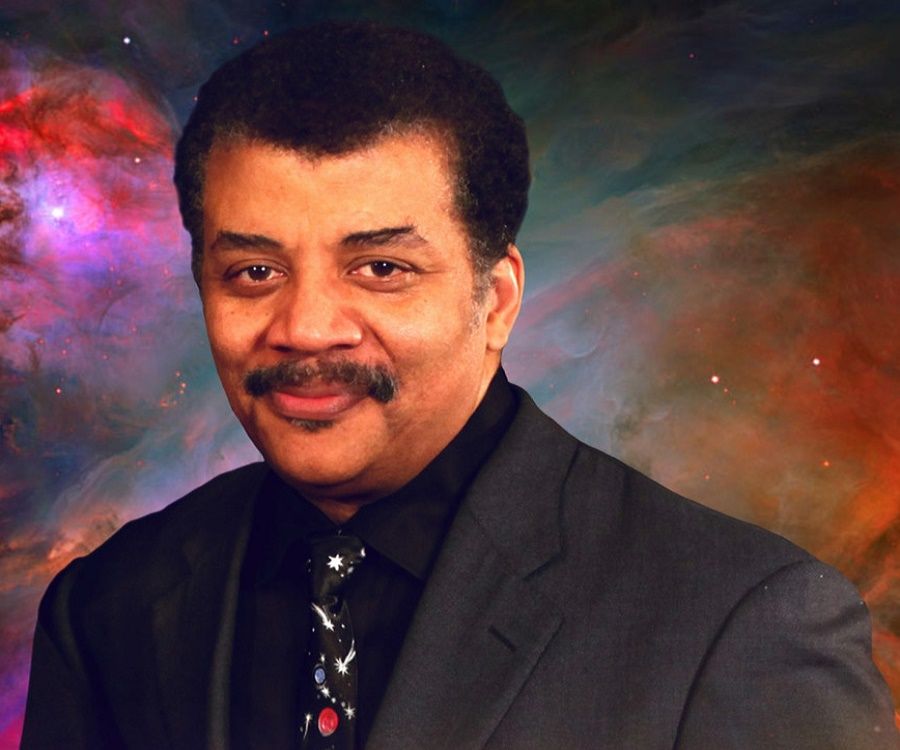How Do You Say Neil DeGrasse Tyson's Name? Get It Right Every Time
Many people, you know, find themselves pausing when it comes to saying the names of public figures, especially those with unique spellings or origins. It's a very common thing, and truly, there's nothing to feel bad about if you're not quite sure. Getting someone's name right, particularly for someone as well-known as Neil deGrasse Tyson, is a sign of respect, and it helps make conversations flow smoothly. This article aims to clear up any confusion, so you can say his name with confidence, every single time you need to.
So, too it's almost, whether you're talking about astronomy, science communication, or just enjoying a fun fact, Neil deGrasse Tyson's name often comes up. He's a very big part of how many of us learn about the universe. Knowing how to say his name correctly can really help you feel more connected to the topics he discusses, and it just makes you sound, well, more informed when you're chatting with others about him, you know?
This guide will break down his name into easy parts, offering simple ways to remember the sounds. We'll look at each piece of his name, and then put it all back together, giving you the tools to say it just right. You might be surprised at how straightforward it actually is once you get the hang of it, and it's something that, honestly, many people wonder about.
Table of Contents
- Neil deGrasse Tyson: A Quick Look
- Why Getting Names Right Really Matters
- Breaking Down the Name: Piece by Piece
- Putting It All Together: The Full Name Sound
- Common Mix-Ups and How to Avoid Them
- Tips for Remembering Names That Are a Bit Hard
- The Power of Correct Pronunciation in Everyday Life
- Listening and Learning from Audio Examples
- Frequently Asked Questions About Neil deGrasse Tyson's Name
Neil deGrasse Tyson: A Quick Look
Before we get into the sounds of his name, it's pretty good to know a little bit about the person himself. Neil deGrasse Tyson, you know, is a very famous American astrophysicist, author, and science communicator. He's widely known for making complex science ideas easy and fun for just about everyone to grasp, which is, honestly, a big deal.
He's the director of the Hayden Planetarium in New York City, and he's hosted many popular television shows, including "Cosmos: A Spacetime Odyssey." His work has, you know, inspired countless people to look up at the stars and wonder about the universe, which is a pretty cool thing to do.
Here are some quick details about him:
| Full Name | Neil deGrasse Tyson |
| Occupation | Astrophysicist, Science Communicator, Author |
| Born | October 5, 1958 |
| Birthplace | The Bronx, New York City, USA |
| Known For | Making science understandable, "Cosmos" TV series, Hayden Planetarium |
Why Getting Names Right Really Matters
You know, getting someone's name right, it's more than just saying the sounds correctly; it's a very big part of how we show respect and connect with others. When you say a name the way it's meant to be said, it shows that you've put in a little effort, and that you value the person you're talking about or to. This is, you know, something that makes a real difference in how people feel.
Think about it: if someone consistently mispronounces your name, it can feel a little bit dismissive, or even like they're not really paying attention. For public figures, like Neil deGrasse Tyson, whose name is heard by millions, getting it right helps keep the message clear and shows a certain level of professionalism when discussing their work. It's, arguably, a small detail that carries quite a lot of weight.
In various settings, from casual chats with friends to more formal discussions or presentations, correct pronunciation helps avoid awkward moments. It ensures that everyone knows exactly who you're talking about, which is, you know, pretty important for clear communication. It helps build trust and makes interactions feel a lot smoother, which is what we all want, right?
This idea of care in communication, it actually extends to many areas. Just like healthcare professionals need to be very precise when discussing treatments, like understanding that "Hormone therapy is an effective treatment for menopause symptoms, but it's not right for everyone," or knowing that "Statins lower cholesterol and protect against heart attack and stroke, but they may lead to side effects in some people," getting names right shows a similar kind of attention to detail. It's about being accurate and thoughtful in how you present information, and that, you know, is a good habit to have.
It’s a bit like when you learn about different medical conditions, say, "Schizoaffective disorder is a mental health condition that is marked by a mix of schizophrenia symptoms, such as hallucinations and delusions, and mood disorder symptoms." You want to be precise. The same care goes for names. It shows you're paying attention to the small but important things, and that, in a way, speaks volumes about your approach to information and people.
Breaking Down the Name: Piece by Piece
Now, let's get down to the very specific sounds. Breaking a name into smaller parts can make it much easier to tackle, and that, you know, is usually how people learn to say new words. We'll go through "Neil," then "deGrasse," and finally "Tyson."
Neil: The First Part
The first name, "Neil," is, in some respects, pretty straightforward for most English speakers. It sounds just like the common English word "kneel," as in to bend down on your knees. There's no real trick here, and that, you know, makes this part easy.
So, you'd say it as: **NEEL**.
It's a short, single-syllable sound. Very simple, and, you know, you probably already say it correctly without even thinking about it.
deGrasse: The Middle, and Often Tricky, Bit
This is where, apparently, some people get a little bit stuck. The "deGrasse" part looks like it might be French, and it is, but its pronunciation in his name is actually pretty much Anglicized, meaning it sounds more like English words. The key is to not overthink it, which, you know, is easier said than done sometimes.
The "de" part is pronounced like "duh." It's a very soft sound, almost like the "the" in "the dog," but without the "th" sound. Just a quick, relaxed "duh."
The "Grasse" part sounds exactly like the English word "grass," as in the green stuff that grows in your yard. So, you're not trying to make a fancy French "ah" sound; it's just plain "grass." This is, you know, a very important distinction.
When you put those two together, you get: **duh-GRASS**.
The stress, you know, is on the "GRASS" part. So it's not "DEE-grass" or "duh-GRAHSS." It's simply "duh-GRASS." Practicing this part a few times can really help it stick in your mind, and that, you know, is what makes it easier over time.
Tyson: The Final Piece
The last name, "Tyson," is, arguably, another fairly common one, and most people say it just right. It sounds like "tie-sun," very similar to the famous boxer Mike Tyson's last name, which, you know, helps a lot of people remember it.
The "Ty" part sounds like "tie," as in a necktie. And the "son" part sounds like "sun," the big star in our sky. Very straightforward, and, you know, not much to worry about here.
So, you say it as: **TIE-sun**.
It's a two-syllable word, with the stress on the first syllable. Pretty simple, and, you know, easy to get right.
Putting It All Together: The Full Name Sound
Now that we've looked at each part, let's put it all back together to say his full name, Neil deGrasse Tyson. When you say it all at once, the sounds flow into each other, and it tends to be a bit quicker than saying each piece separately.
The full name sounds like: **NEEL duh-GRASS TIE-sun**.
Try saying it out loud a few times, focusing on the flow. Pay attention to the stress on "NEEL," "GRASS," and "TIE." The "duh" sound in the middle is very light and quick. It's almost as if the "de" part is just a very small bridge between the first and last names, which, you know, helps it feel natural.
Think of it as a rhythm: three strong beats with a very soft beat in the middle. NEEL (strong) duh (soft) GRASS (strong) TIE-sun (strong). This rhythm can actually help you remember the correct way to say it, and that, you know, is a pretty neat trick for memory.
The goal is to make it sound natural, not like you're trying to carefully articulate each syllable on its own. It should just roll off the tongue. With a little bit of practice, you'll find it becomes second nature, and that, you know, is what makes it feel effortless.
Common Mix-Ups and How to Avoid Them
It's pretty common for people to make a few specific errors when saying Neil deGrasse Tyson's name. Knowing what these mix-ups are can actually help you avoid them yourself, and that, you know, is a good way to learn.
One very frequent mistake is pronouncing "deGrasse" with a hard "dee" sound at the beginning, like "DEE-grass" instead of "duh-GRASS." Remember, it's a soft, quick "duh." This is, in some respects, the most important part to get right for many people.
Another common error is putting the stress on the wrong syllable in "deGrasse," perhaps saying "duh-GRASS-ee" or trying to make it sound more French, like "duh-GRAHSS." Just stick to the English "grass" sound, and you'll be fine. It's just "duh-GRASS," plain and simple, and that, you know, really simplifies things.
Sometimes, people might also stumble over the flow of the whole name, making it sound a bit choppy. The key is to link the parts smoothly. Say "Neil" then quickly go into "duh-Grasse," and then smoothly into "Tyson." It should feel like one continuous phrase, not three separate words, which, you know, makes it sound a lot better.
To avoid these, you know, try listening to how he says his own name, or how others say it correctly in interviews or on television. Repeatedly hearing the right pronunciation can train your ear, and that, you know, is a very effective way to learn. It's all about practice and listening carefully, which, you know, helps a lot.
Tips for Remembering Names That Are a Bit Hard
Learning to say a name like Neil deGrasse Tyson's, you know, can teach you some very useful tricks for remembering other names that might seem a little bit tough at first. Many people find these methods helpful, and that, you know, is why they're worth sharing.
First, try to break the name into smaller, more manageable sounds, just like we did with "Neil deGrasse Tyson." This often makes a seemingly complex name feel much less daunting. It's a bit like taking a big problem and breaking it into smaller steps, which, you know, makes it easier to solve.
Second, associate the parts of the name with words you already know. For "deGrasse," thinking of "duh" and "grass" is a great example. This kind of mental link can really help your memory, and that, you know, is a trick many memory experts suggest.
Third, say the name out loud several times. Repetition is, arguably, one of the most powerful tools for memory. Don't just say it in your head; actually vocalize it. The act of speaking the sounds helps solidify them in your mind, and that, you know, is a pretty effective way to learn.
Fourth, listen to others say the name. If you're unsure, search for interviews or public appearances of the person. Hearing the correct pronunciation from a native speaker or the person themselves is, you know, always the best guide. There are many resources online for this, which, you know, can be really helpful.
Fifth, if you're talking to someone and you're unsure how to say their name, it's perfectly fine to ask politely. A simple "Could you please tell me how to pronounce your name?" shows respect and a willingness to learn. Most people appreciate the effort, and that, you know, is a very human way to connect.
These tips are useful for all kinds of names, whether it's a new colleague, a person you meet at an event, or someone you're reading about. Just like understanding that "Diagnosing erectile dysfunction involves having a physical exam and answering questions about your medical and sexual history," getting names right involves a bit of inquiry and attention to detail. It's about being thorough and thoughtful in your interactions, which, you know, really helps in all parts of life.
The Power of Correct Pronunciation in Everyday Life
Beyond just showing respect, correctly saying names, you know, has a very real impact on how you're perceived and how effective your communication can be. It's a subtle thing, but it truly makes a difference in many situations, and that, you know, is something worth considering.
When you consistently pronounce names correctly, it builds trust. People see you as someone who pays attention, who cares about details, and who respects others. This can, you know, open doors in both personal and professional settings. It makes you seem more credible and reliable, which, you know, is always a good thing.
In discussions, especially about academic or scientific topics, getting the names of key figures right adds a layer of authority to what you're saying. If you're talking about, say, a new discovery and you mispron

Neil DeGrasse Tyson Biography - Facts, Childhood, Family Life & Achievements

Neil deGrasse Tyson - Profile Images — The Movie Database (TMDB)

Neil DeGrasse Tyson Biography - Facts, Childhood, Family Life & Achievements